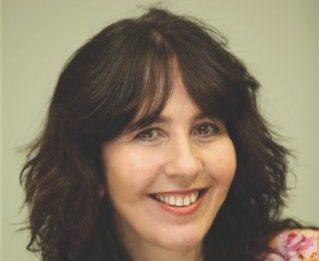
News

The glass is definitely half full
PETA KROST MAUNDER
She was talking about the incredible beauty of this country, the fact that South African people are so friendly and that we have the best weather. She was 100% right. In fact, I couldn’t fault her, but instinctively I wanted to try.
Just this week, in the interview I did with Colin Coleman, he referred to South Africans believing the grass is always greener on the other side, which he believes it is not (See page 10). At the South African Jewish Board of Deputies conference last weekend, a number of well-known South Africans said the same kind of thing. They were reiterating how we always unnecessarily see our glass in South Africa as half empty and not half full. (See pages 4 and 8.)
Discovery CEO Adrian Gore – who so many dismissively call an eternal optimist – is always saying that we see doom and gloom, and not the light at the end of the tunnel. Truth is, the light is clearly shining, but the road towards it is long and winding.
So, yes, we have lots of problems and lots of things that desperately need fixing in this country. Don’t let me get started! I – like my fellow countrymen and women – can wax lyrical about all our problems.
Although I won’t underplay them, because they are pretty bad, we are not alone in having problems. And frankly, things aren’t so much better elsewhere.
Something else that Coleman said had me nodding. He spoke of how so many South African emigrants have done well in their new homes over the years, but how many of them feel quite displaced and haven’t become American, Australian or British, but still see themselves as South Africans living in those countries. They long for home and those familiar treats and creature comforts we have here.
You just had to look at who was yelling for the Bokke two weeks ago in those countries and which team they supported.
There are actually organisations around the world specifically for Jewish South Africans, most of whom have been living in their adopted countries for decades or even generations. Intrinsically, we know why.
This is an astonishing country and we have a really good life here. Yes, I hear you saying, but we have so many problems. You aren’t wrong.
But being a Jewish person in the United Kingdom right now is hardly ideal. Just last week, the editor of the Jewish Chronicle wrote an editorial pleading with his countrymen who aren’t Jewish not to vote for Jeremy Corbyn as prime minister. Corbyn is so openly anti-Semitic, yet he stands a chance of becoming the next prime minister of Great Britain, where there is a huge and strong Jewish community.
In most of Europe, the rise of right-wing fascists – who are blatantly anti-Semitic – is real. Then there are those in Europe and the United States who, like Corbyn, use their hatred of Israel as a cover for their feelings towards Jews.
Right now, as Jews, there are few countries that are welcoming. That is, other than Israel.
Then, on Tuesday this week, when I woke up to sunshine and a spring in my step, I switched on Chai FM and heard how Israel was being bombarded by missile fire from Gaza. Around 350 rockets have since been launched into Israel (at the time of going to print) in an attempt to destroy as many Jewish lives as possible. Interestingly, hardly any other media mentioned this. That is, outside of Israeli and Jewish media.
Some media did, however, lambaste Israel for killing Baha Abu al-Ata, a leader of the renegade terrorist organisation, Palestinian Islamic Jihad, but as for the barrage of rockets into civilian Israel… nothing.
I love Israel, but this week I have to admit I was happy I live on the southern tip of Africa and not in Sderot, Modiin or even Tel Aviv. For people there, it was at least two days spent fearfully wondering if the Iron Dome was going to protect them from the missiles.
You know that exercise where you have a group of people in a circle and they each put their shoes in the middle, and have the option of choosing any pair they want? Invariably, they choose their own – because they have been worn to fit your foot, they are comfortable, and even if they have a hole in them, you made that hole and have gotten used to it. In other words, as bad as our problems are, they are our problems, and we know them and can live with them.
We can choose to see them as the worst ever, or we can choose to see them differently. We can choose to find ways to solve them for ourselves and others. We can even find the opportunities in them.
We have choices, but I can only say – and I am at fault here too – there really is no point in focusing on the bad without seeing the good. There is no point in seeing things in their worst light. It doesn’t help us solve anything, or engender the kind of life we want to live.
Thank you to all those people who inspired me this week to recognise that, with all our problems, we live in an incredible country.
Shabbat Shalom!




